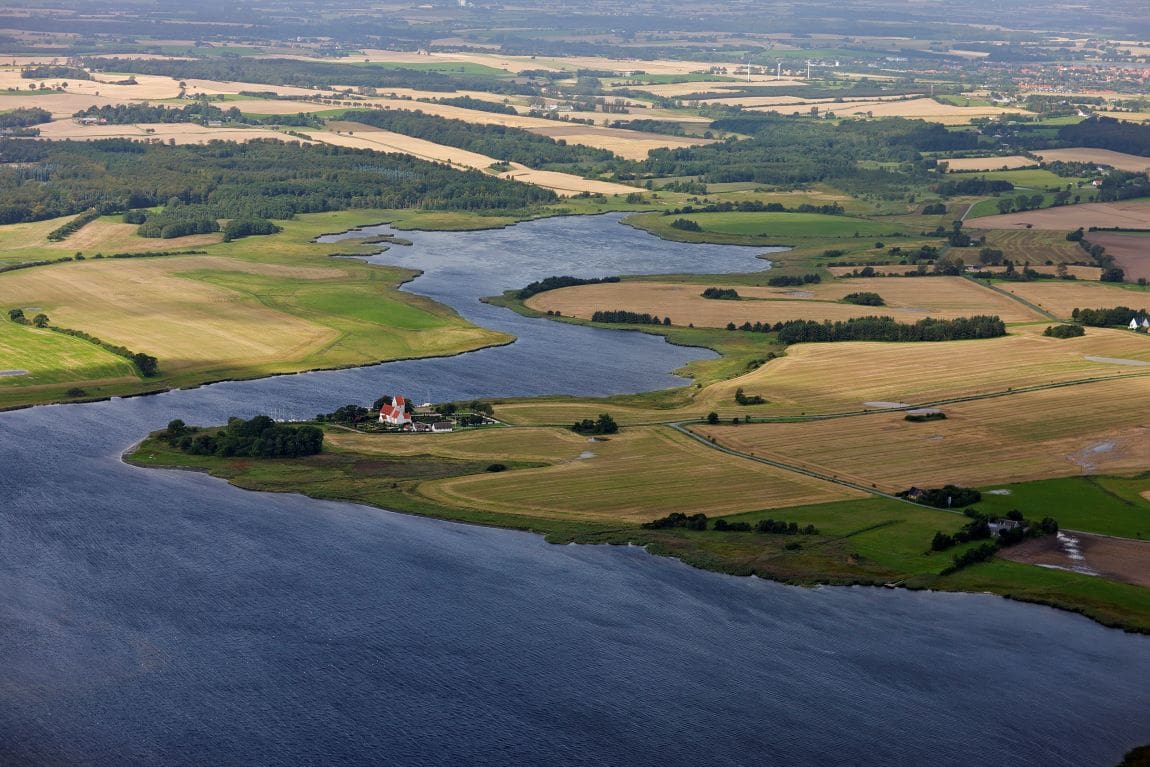A recalculation of Denmark’s nitrogen reduction targets, known as the second opinion, has provided a stronger foundation for environmental efforts, particularly regarding the country’s aquatic ecosystems.
According to a press release from Landbrug & Fødevarer (the Danish Agriculture and Food Council), the updated nitrogen targets can now be achieved by implementing the ambitious plans set out in the Green Tripartite Agreement. However, concerns remain about the uncertainties surrounding the data used to set these targets, especially in certain regions where the required reductions could negatively impact agricultural production.
Stronger basis but lingering uncertainties
The “second opinion” on nitrogen reduction targets forms the basis for revisiting Denmark’s agricultural agreement. Anders Panum Jensen, Environmental Director at Landbrug & Fødevarer, emphasized the importance of this recalculated data, stating: “With the recalculations, also known as the ‘second opinion,’ we now have a stronger scientific foundation to continue our work on water environment efforts, and the foundation for the upcoming review of the agricultural agreement is strengthened.”
While the updated figures provide a clearer path forward, concerns about the impact of these targets on agriculture remain. Jensen pointed out that, in some areas, significant reductions in nitrogen runoff could severely affect agricultural production, especially since much of the uncertainty stems from the variability in data between regions. These discrepancies are largely attributed to changes in modeling calculations rather than shifts in environmental conditions.
Local solutions via coastal water councils
A key feature of the Green Tripartite Agreement is the delegation of responsibility to local coastal water councils. These councils, led by municipalities, are tasked with finding region-specific solutions to ensure local fjords and coastal waters reach good ecological status.
Jensen believes that this localized approach is more effective than top-down regulations from the capital, saying: “With municipalities taking a leading role, local associations and other engaged parties should determine how each fjord or coastal water area can achieve good ecological status. Together, with shared ownership of the solutions, we will reach our goals much more easily and effectively than through desk-bound solutions in Copenhagen.”
This hands-on approach aims to empower communities to tailor their environmental efforts to the unique needs of their local ecosystems.
Cross-border nitrogen emissions highlighted
One area where Landbrug & Fødevarer sees room for improvement is in addressing nitrogen pollution originating from Denmark’s neighboring countries. Jensen expressed satisfaction that the recalculated targets highlighted the significance of cross-border nitrogen emissions, something the council has long advocated for.
“The evaluation shows, as we have argued for years, that these emissions must be reduced in the countries they originate from – not in Denmark, as is currently assumed. This means that in several parts of the country, we are already at or closer to meeting our nitrogen reduction goals,” Jensen noted.
However, the recalculated targets also revealed that some regions, particularly in eastern Denmark, have a longer way to go than initially thought. New modeling techniques have shown that nitrogen runoff through Danish waterways in these areas is higher than previously estimated.
A paradigm shift in nitrogen management
Despite the challenges, Landbrug & Fødevarer views the Green Tripartite Agreement as a significant step forward in addressing nitrogen emissions. Jensen called the agreement a “paradigm shift,” explaining that it will not only improve wastewater treatment but also drive land use changes by 2030. These changes include afforestation, extensification of farmlands, and converting lowland areas to create new natural habitats.
“Through this approach, we will address multiple challenges with the same land area, as it also contributes to our climate goals,” Jensen said.
However, he cautioned that the process of turning proposals into concrete actions is often slow. This could lead to stricter regulations for Danish farmers in the interim, including more stringent requirements for catch crops. The government has committed to compensating farmers for their costs and providing the necessary project funds, while municipalities will take a leading role in managing the local efforts.
“We are ready to deliver locally. Together, we can meet our targets. In this way, we can both strengthen agricultural production in robust areas, ensure a healthy water environment, and create vast new natural areas,” Jensen concluded.
Second opinion taskforce findings
The second opinion process was initiated as part of the 2021 agricultural agreement. It involved a taskforce made up of the Ministry of Food, Ministry of Environment, and Ministry of Finance, with external analyses conducted by consultancy firm Cowi (spring 2023) and an international expert panel (autumn 2023). Additionally, reports from local coastal water councils and further analyses from Aarhus University and DHI contributed to the recalibration of nitrogen reduction targets.
The findings from this second opinion are expected to play a pivotal role in guiding Denmark’s future environmental strategies and ensuring that the country remains on track to meet its 2030 goals for nitrogen reduction.
Article Source:
Press Release/Material by Landbrug & Fødevarer (Danish Agriculture & Food Council)
Featured image credit: Danish Agriculture & Food Council | CC BY-NC




